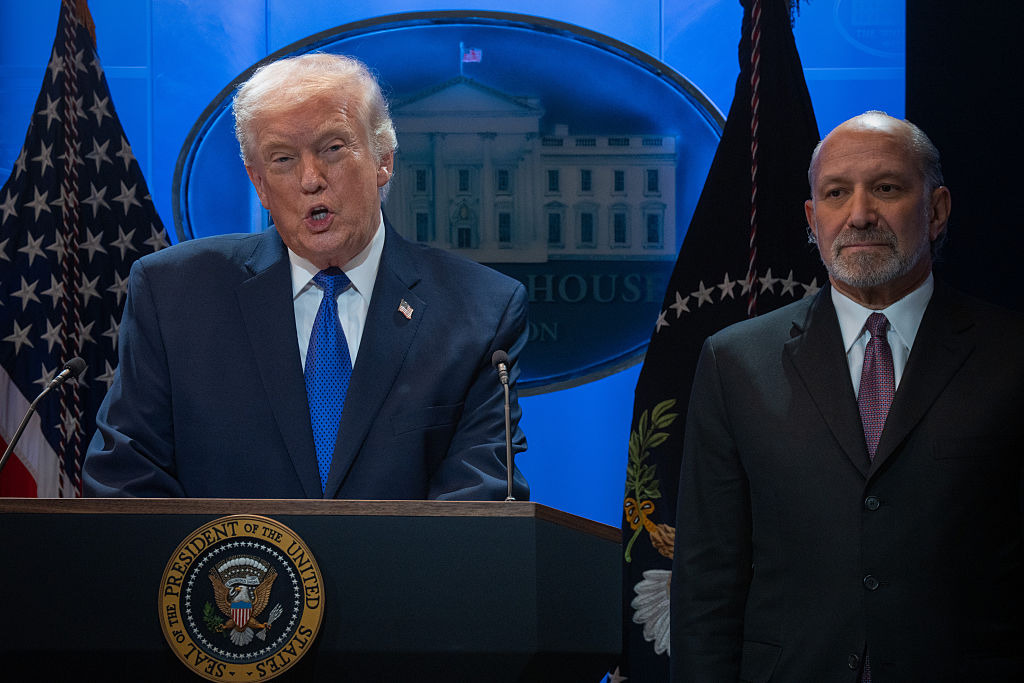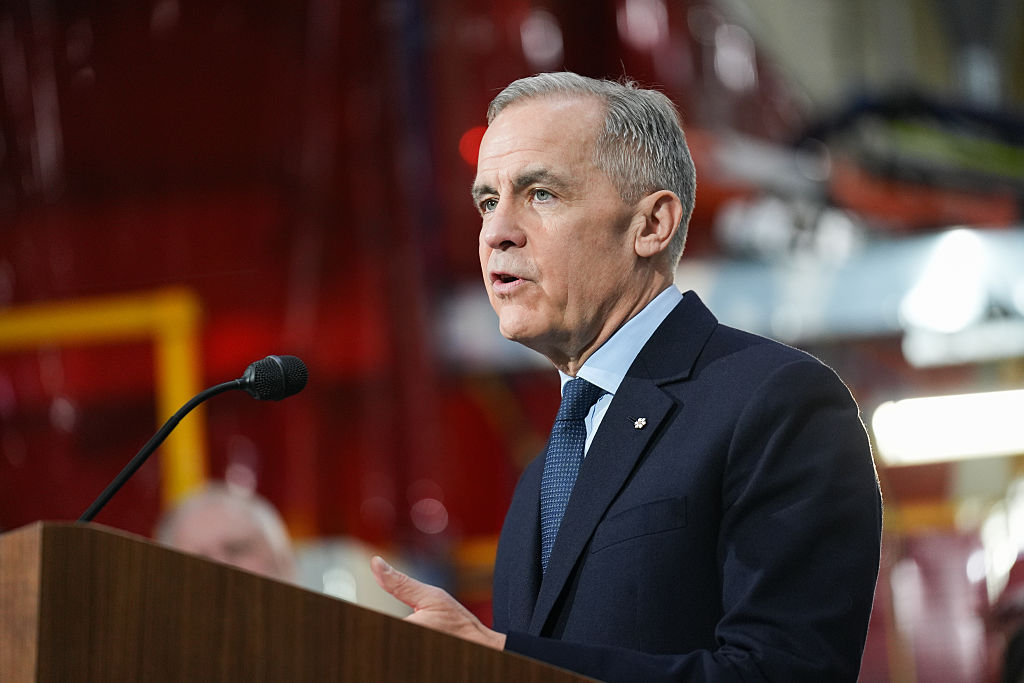Remarks: The Political and Social State of Latin America
Remarks: The Political and Social State of Latin America
"We have to begin to see Latin America as an opportunity for the United States, a natural economic partner that shares democratic values and common business practices," said AS/COA's Eric Farnsworth at the AASA and OAC Global Summit.
"THE POLITICAL AND SOCIAL STATE OF LATIN AMERICA"
REMARKS TO AASA AND OAC GLOBAL SUMMIT
ERIC FARNSWORTH
FEBRUARY 7, 2020
***** As Prepared for Delivery *****
Good morning. Thank you for such a warm welcome and indeed, for this invitation to address you. It’s a particular pleasure to be in Miami at this time of year, which I’m sure has nothing to do with why you all selected this location for your 2020 Global Summit.
I only have one complaint, that you didn’t host the conference last week, so that we could all partake in the Super Bowl-related activities. But, anyway, we can congratulate the Kansas City Chiefs for their stirring comeback victory, and wish them well on their return to Missouri.
I’m also glad to be out of Washington during these politically-charged times. Sometimes it can be pretty bad. Just three days ago, during the State of the Union Address, the president and speaker of the house appeared to avoid even shaking each others hands. Which is why I avoided handing out advance copies of my remarks today; I don’t want anyone ripping them up. I mean, Harry Truman suggested getting a dog if you want to have a friend in Washington.
But still, at least in Washington you know who your friends are, because they are the ones who stab you in the chest. So at least you can see them coming…
I’ve been privileged to join MEMA for activities in Washington, and to come to know AASA and the OAC, as well. You all do important work, not just in the basic day-to-day blocking and tackling of running your businesses and literally driving global transportation, but also in advocating for sound policies that produce better outcomes. Paul McCarthy and Ben Brucato do a terrific job in representing your interests, and Ann Wilson and Leigh Marino have taught me a significant amount about the auto sector and the importance of supply chains and how global trade really works. And so I’m pleased to join you here today.
As all of you know so well, in fact, global trade is the lifeblood of U.S. manufacturing success. When we compete, we win. But we have to be allowed to compete, based on fair competition, intellectual property and innovation, and sound, market-based principles. And when others, like China, are allowed to impose their own standards of competition on the global marketplace, we all suffer. And that means jobs and also the ability to reinvest and grow.
But when the United States sets the standards of international trade, we promote a global vision that opens markets to U.S. goods and services and levels the playing field. When disputes arise, we can transparently and impartially address them.
And so we celebrate along with all of you the signing last week in Washington of the USMCA, attended by industry leaders including MEMA president and CEO Bill Long, as a critical step in establishing certainty and organizing the North American economy effectively for the longer term. USMCA builds on the original NAFTA, a successful, cutting edge agreement which was nonetheless beginning to show its 25 year age.
With an expanded scope, including whole new product categories that didn’t even exist when I was at ustr during the nafta negotiations—yes, I was 12 years old at the time—USMCA offers the chance, once fully implemented, to reconfim North America as the worlds most competitive economic region. I mean, think about what the world looked like in 1994, when NAFTA initially went into force.
The Cold War was over, Japan was the economic threat not China, social media was a telephone hanging on your kitchen wall, and Amazon was a river in Brazil. Think about the car you were driving in 1994 versus your car today—it’s not even close to the same… Unless of course you are in the non-profit sector like I am and actually still driving the same car you had in 1994…
But in seriousness, without USMCA, the North American economy would continue to be governed by a generation-old agreement. Which is one reason why the updated and expanded agreement is crucial, not just for the fortunes of the auto sector but for the vitality of the entire economy.
And in my view, expanding trade and economic opportunity must be a top priority not just for North America, but also for Latin America as a whole. Over the past year, across Latin America, we’ve seen what happens when economies stagnate, corruption scandals abound, and expectations go unmet. From Bolivia and Ecuador to Colombia and, most shockingly, Chile, public protests exploded onto the front pages. Argentina and Mexico remained quiescent, perhaps, because of elections in both nations that served as a pressure release valve for the street. And Venezuela, of course, has now become the worst humanitarian tragedy in the modern history of Latin America.
Although the genesis of the protests was different in each nation, there was at least one thing that bound them together: frustration with the status quo. Frustration that pay packages languished while others made fortunes on the commodities boom from earlier this decade…frustration that infrastructure is decrepit, that education lags, that rampant crime is a reality for too many. Frustration with sub-standard healthcare. Frustration that elites are tone-deaf and appear to be divorced from the aspirations of their own people…and voters are willing to throw them all out and start fresh.
Thank goodness nothing like that could ever happen in the United States…
And so leaders are increasingly seeking ways to regenerate economic growth as a means to address the popular mood. Many have welcomed China as a source of large amounts of new capital. And indeed, Beijing’s checkbook diplomacy has been a significant source of new income for the region, a dramatic shift from just a few short years ago.
It’s remarkable to know that China is now the top trade partner of Brazil, Chile, and Peru, and the second highest of Argentina. But the cost can be high, both in financial terms and, more importantly, democratic values, and Latin America is only just waking up to the implications of China’s significant and growing presence across the region. The ultimate example is China’s support for the authoritarian Maduro regime in Venezuela.
Meanwhile, the United States has lowered its ambitions on hemispheric trade. Passage of USMCA was a solid step. And the State of the Union did mention a number of Latin nations, including Venezuela, Cuba and Nicaragua, and Honduras, El Salvador, and Guatemala in addition to Mexico and Canada. But these nations were name-checked from the security and immigration perspectives—the negative side of the ledger—and the positive side—the economic and trade agenda—was overlooked.
That’s an opportunity missed, because Brazil, for example, is the largest economy in Latin America by far and for the first time in memory Brazil has a government that is actively seeking closer relations with Washington. Or the four nations that make up the Pacific Alliance—Mexico, Colombia, Peru, and Chile—all friends of the United States, and all headed by democratically-elected leaders who are looking for new ways to engineer economic growth. And, of course, the Trans-Pacific Partnership, which the president walked away from early in his mandate, could still form at some point the basis for a stronger, more robust economic growth agenda for Latin America, to say nothing of Asia as a bulwark against China.
And so, in my view, we have to begin to see Latin America as an opportunity for the United States, a natural economic partner that shares democratic values and common business practices. Yes, the region does face difficulties, and the United States must be a partner with the region to address them. But if that’s all we see when we look at a region of two thirds of a billion people and five and a half trillion dollars of GDP, we are unnecessarily foregoing the economic connections that will help their people, our people, and your businesses.
Others, including China, see the opportunities that we increasingly seem to take for granted. The United Dtates can compete effectively, but we have to determine to do so. And regenerating a meaningful, ambitious trade agenda for the Americas would be one very important place to begin. It’s what the region is asking for, and it’s something that we should be, too. Not because it’s good for them, although it is, but because it’s plainly good for us.
This isn’t a message that Miami, as the informal capital of Latin America, needs to hear, of course. I mean, just look at the recent Super Bowl Halftime Show which was a full-on celebration of Latin America and Latin culture in the United States. But it is, clearly, a message that the rest of our country needs to hear over and over again, especially as we move into this critically-important election year in the United States.
And each of you, engaged in a daily effort to grow your businesses through expanded markets abroad, are among the very best, most credible voices to talk about the benefits of trade, and, even more specifically, the benefits of trade throughout our shared hemisphere. I hope you will consider doing so.
And so I want to thank you again for your invitation for me to join you here in Miami. And I want to offer each one of you the very best wishes for your personal and professional success...across America, and across the Americas.
Thank you.








